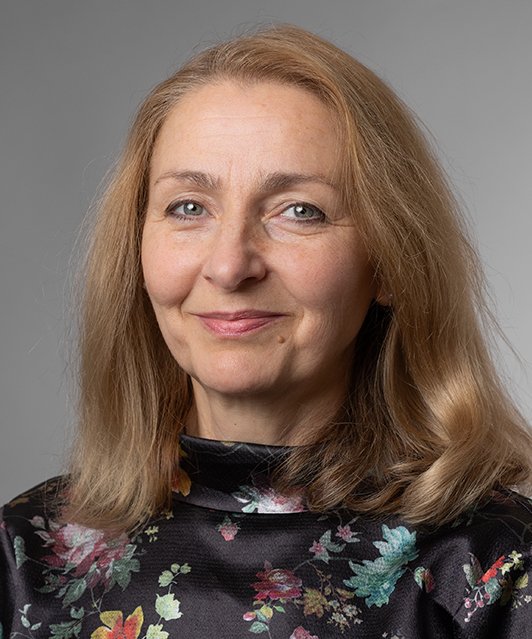Get help with assistant professor supervision processes
Assistant professor supervision has great development potential, not only for the assistant professor but also for the local academic environments. Therefore, it can be useful to take on the role of assistant professor supervisor in a structured way, so that the assistant professor becomes a valuable and active player in the joint local efforts for excellent teaching and great collegial collaboration.


At AU, an assistant professor is assigned an assistant professor supervisor either at the start of their assistant professorship or in connection with the assistant professor’s participation in the University Pedagogical Programme. The assistant professor supervisor's role is to support the assistant professor's academic and professional development.
"Assistant professor supervision as a focus area has great development potential, not only for the assistant professor but also for the local academic environments. An assistant professor programme often offers an opportunity to experiment, rethink, and develop existing practices, which can inspire others to take a renewed look at their teaching and supervision,” special consultant at the CED Dorina Gnaur says.
Dorina Gnaur comes from an associate professor position at Aalborg University where she has, among other things, researched educational competency development for teachers in higher education and worked with educational supervision. Now, she teaches on AU’s University Pedagogical Programme, which is offered by the CED.
In connection with the Danish framework for advancing university pedagogy, which largely emphasizes teaching and education as a collegial community of practice, she has made a practice analysis of the assistant professor supervisor role at AU. Here she has interviewed assistant professors and assistant professor supervisors from various academic environments:
"The interviews show that the assistant professor supervisors are not always informed about what is expected of them. Therefore, the environments both must define the role and acknowledge it as an important function. The role is important because it prepares colleagues to become active players in the collective effort to elevate the teaching tasks and create solid collegial collaboration related to teaching and education," Dorina Gnaur emphasizes.
The multifaceted role of the assistant professor supervisors
"The assistant professor supervisor's role differs from other types of supervision, for example supervision of PhD students, as it is primarily a collegial relationship. The assistant professor supervisor is a more experienced colleague who, together with the rest of the collegial community, must introduce the assistant professor to local practices," Dorina Gnaur says.
The role of assistant professor supervisor can be challenging if it is not sufficiently clarified and described locally. But also, if the assistant professor supervisor does not feel prepared for the job, for example, if the supervisor lacks skills to carry out educational collegial supervision or to act as a mentor and feedback partner of the assistant professor:
"The assistant professor must balance between research, teaching, and networking. Thereby, they may find themselves in situations which they experience as challenging on several fronts. Especially, if they are new to the environment or teaching. There may be a different teaching culture or different social conventions in the workplace than they are used to. And the relationship with colleagues and management is something new they must get used to. And then there is the relative psychological uncertainty in relation to career opportunities since tenure is rarely a guarantee," elaborates Dorina Gnaur.
In addition to having to deal with these matters, the assistant professor supervisor also has their own palette of tasks with which they must deal. If there are no clear local procedures, this can make the assistant professor supervisor’s task extra complicated.
Approaching the task in a structured way
Because of these challenges, it is important to approach the task in a structured way. Therefore, it is a good idea to initiate the supervision process right from the start or in connection with the assistant professor’s University Pedagogical Programme.
In this connection, it is important to align expectations in relation to the themes and needs of the supervision. This includes practical aspects related to meeting times, planning and conducting teaching, tasks relating to the University Pedagogical Programme, and if needed, opportunities for the assistant professor to observe the teaching of the supervisor or another colleague.
"Alignment of expectations also relates to individual conditions and needs, for example, how to become part of the collegial environment and participation in activities at the workplace. The supervisor's role can range between being an educational sounding board, academic mentor, research partner, and colleague. Therefore, it is important to address which role makes the most sense. This may also change during the assistant professor's supervision period," Dorina Gnaur emphasizes.
Where to find help and support
The role of the assistant professor supervisor should be defined in relation to local practices by implementing local procedures and descriptions. The CED offers help and consultation services rooted in the academic environments. For example, the CED can participate in local meetings or employee seminars, hold workshops, or provide advice.
"We are happy to help you through the process. Both with a formal establishment of the role and the work involved, and how to support it in practice – for example, how to observe teaching in a way that feels safe for those involved, how to provide feedback in a professionally developing way, or how to hold supervision meetings and stimulate educational awareness," concludes Dorina Gnaur.
Want to hear more? Contact Dorina Gnaur (dg@au.dk | +45 20 47 71 27) to hear more about the options for help.
The CED has created a guide for assistant professor supervision. The guide concerns the supervision of the assistant professor's tasks within research and teaching, with a particular focus on the development of teaching skills, including supervision and examinations.
